Ten years ago, we couldn't have imagined how tools like machine learning, eDNA, and satellites would advance and transform conservation work. Now technology is advancing faster than ever, and as tools become smaller, lighter, and more affordable, it's vital to have a space where community members can discuss the next big thing, share ideas, compare tool options, and tell the story of their experiences - positive, negative, and anything in between - while using new technologies.
In 2021, the WILDLABS State of Conservation Tech report detailed what tools show the most promise according to community members, as well as what tools are currently seen as the most effective. And as new tools enter the field, we're excited to see how this data will change over time, and how this group grows over time as well.
Our State of Conservation Tech research also discusses something called the "Hype Cycle" - the pattern that occurs when a new technology bursts onto the scene, promises to be an exciting solution, encounters challenges as new users adopt the tool and put it into practice beyond just theory, and eventually settles into its most effective state as users acquire the right skills to use it to its actual potential. Machine learning, one of the most promising technologies, is currently in the middle of its own hype cycle, and we see community members working through their own hurdles to incorporate ML into their work effectively. Despite what you may think, this Hype Cycle can also be positive for tech development, as it means that users have big ideas for new tools, and with the right resources and skills, they can work toward bringing those ideas to life. And as our community members experiences the Hype Cycle for various tools at their own paces, we hope this group will also serve as a place to discuss that process and overcome hurdles together.
Ready to discover new possibilities? Join our Emerging Tech group now and get to know your forward-thinking conservation tech peers!
Header photo: Internet of Elephants
- @IsobelAshbey
- | She/her/hers
Running a Tech for Good initiative at Cambridge Consultants, looking for organisations who need help developing new technology for conservation


- 0 Resources
- 8 Discussions
- 5 Groups
Dr JOhn Read is founder and CEO of Conservation Innovation company Thylation, and founder and director of several adaptive management conservation projects . www.ecologicalhorizons.com, www.thylation.com, www.johnlread.com
- 0 Resources
- 0 Discussions
- 4 Groups
- 0 Resources
- 6 Discussions
- 6 Groups
- @Becky_Heath
- | She/ Her
University of Cambridge & Imperial College London
Interdisciplinary scientist working in field data collection methods and tropical agriculture

- 0 Resources
- 9 Discussions
- 7 Groups
Sustainability Manager for CERES Tag LTD. An animal health company; animal monitoring, conservation, & anti-poaching/ rural crime. Wildlife, livestock, equine & companion. #CeresTrace #CeresWild #CeresRanch




- 2 Resources
- 19 Discussions
- 24 Groups
- @TaliaSpeaker
- | She/her
WILDLABS & World Wide Fund for Nature/ World Wildlife Fund (WWF)
I'm the WILDLABS Research Specialist at WWF-US

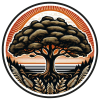

- 12 Resources
- 54 Discussions
- 24 Groups
- @serena.le
- | she/her
Conservation tech enthusiast
- 0 Resources
- 0 Discussions
- 9 Groups
- @StephODonnell
- | She / Her
WILDLABS & Fauna & Flora
I'm the Community Manager at WILDLABS

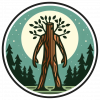

- 152 Resources
- 659 Discussions
- 30 Groups
I am the executive director of FishEye Collaborative, a non-profit leveraging emergent underwater listening technologies to grow our understanding of marine ecosystems. I am also the president of FishEye Acoustics, a marine tech company developing a new class of acoustic sensors.
- 0 Resources
- 0 Discussions
- 6 Groups
- @Rosalia_Kaluki
- | She/Her
Passionate about conservation and Nature
- 0 Resources
- 0 Discussions
- 5 Groups
- @AnnabelL
- | she/her
- 0 Resources
- 0 Discussions
- 10 Groups
- 0 Resources
- 3 Discussions
- 11 Groups
This SPACES paper aims to inspire the audience to use spatial intelligence as an enabler for integrated nature and climate action. It showcases ’emerging’ data sources and digital technology in the nature and climate...
28 October 2022
*New closing date!* WILDLABS and Fauna & Flora International are seeking an early career conservationist for 12-month paid internship position to grow and support the Southeast Asia regional community in our global...
19 October 2022
Apply now for $2,500–$15,000 USD grants for early-stage ideas or projects that address global challenges.
4 October 2022
This paper released by the World Economic Forum and the SPACES coalition shows how businesses can embrace the use of spatial intelligence for action on nature and climate. How can we make sure businesses apply the...
23 September 2022
This role will be employed under Osa Conservation's Movement Ecology Program. Broadly, the project aims to develop and use novel animal tracking technology to increase our understanding of the movement ecology of...
22 September 2022
Explore BOEM data, build analytic tools, and recommend solutions for sea turtle relocation trawling approaches to reduce incidental risk. Prize: $40,000
21 September 2022
From an invasive reptile trapping system to a nucleic acid barcode that identifies poached and trafficked wildlife products anywhere in the world, the U.S. Fish and Wildlife Service’s Theodore Roosevelt (TR) Genius...
21 September 2022
Amazon Sustainability is welcoming proposals related to climate risk/resilience, life cycle assessment, circular strategies, and more. Selected PIs receive unrestricted funds, no more than $80,000 USD on average
20 September 2022
This technology was recently tested in Kauai, Hawaii, with the National Tropical Botanical Garden and has successfully collected from 5 critically endangered species that were otherwise inaccessible.
16 September 2022
Careers
This Senior-Level (SL) position is located in the Office of Research and Development (ORD), Office of Science Advisor, Policy and Engagement (OSAPE). The location will be determined after a selection has been made...
14 September 2022
Article
APPLY NOW! The Sovereign Nature Initiative has partnered with the Kenya Wildlife Trust to experiment with emerging technologies to support their predators' conservation work.Challenges will focus on:1. Lion...
30 August 2022
Boost cons tech capacity at an international NGO! Fauna & Flora International is offering a paid three-month internship to consolidate and share best practices for the application of emerging hardware and software...
26 August 2022
April 2024
event
March 2024
event
| Description | Activity | Replies | Groups | Updated |
|---|---|---|---|---|
| This is so interesting - I would love to chat more about this as I've been thinking about this a lot for how we could (or shouldnt) be thinking about incorporating this into... |
+39
|
AI for Conservation, Emerging Tech | 1 hour 40 minutes ago | |
| Congratulations! My first hydromoth was just arrived yesterday and so excited! Looking forward for the update from your project!!! |
|
Acoustics, Biologging, Climate Change, Conservation Tech Training and Education, Data management and processing tools, Emerging Tech, Open Source Solutions, Protected Area Management Tools, Sensors, Software and Mobile Apps | 1 day 1 hour ago | |
| SYNTHETIC APERTURE RADAR WILL ALSO DETECT AND LOCATE CHAINSAWS, MOTORBIKES, BICYLCLES, FIREARMS, MACHETES in fact anything metal. I have been concentrating on trying to get... |
+10
|
AI for Conservation, Drones, Emerging Tech, Human-Wildlife Conflict, Wildlife Crime | 1 week 1 day ago | |
| Hey Sol, No problem at all. Depending on your configuration, the Audiomoth software would have to work on a PCB with an ESP32 chip which is the unit on the audiomoth/... |
|
Acoustics, AI for Conservation, Data management and processing tools, Emerging Tech, Sustainable Fishing Challenges | 1 week 3 days ago | |
| Gotcha, well I look forward to seeing future iterations and following along with your progress!! |
|
Autonomous Camera Traps for Insects, AI for Conservation, Emerging Tech, Open Source Solutions | 1 week 6 days ago | |
| 'Most importantly, we have to make it play a MIDI version of the DoctorWho theme song when you arm the device. That has to be the #1 feature if you ask me!' Seconded! |
+9
|
Acoustics, Biologging, Emerging Tech, Open Source Solutions, Sensors | 2 weeks 2 days ago | |
| Hi @Alasdair Great to hear from you! Thanks for the comment and for those very useful links (very interesting). And for letting @Rob_Appleby know. I can't wait to hear... |
|
Emerging Tech, Camera Traps, Conservation Tech Training and Education | 1 month ago | |
| Hello everyone, I'm interested in gathering insights on how the behavior of different species impacts the development and efficacy of... |
|
Biologging, Acoustics, Camera Traps, eDNA & Genomics, Emerging Tech, Marine Conservation | 1 month 1 week ago | |
| Hi @timbirdweather I've now got them up and running and winding how I can provide feedback on species ID to improve the accuracy over time. It would be really powerful to have a... |
|
Acoustics, AI for Conservation, Citizen Science, Emerging Tech | 1 month 2 weeks ago | |
| Thank you for the help! |
|
Biologging, Emerging Tech | 2 months 2 weeks ago | |
| Hi Danilo. you seem very passionate about this initiative which is a good start.It is an interesting coincidence that I am starting another project for the coral reefs in the... |
|
Acoustics, AI for Conservation, Biologging, Camera Traps, Citizen Science, Climate Change, Community Base, Connectivity, Drones, Emerging Tech, Human-Wildlife Conflict, Open Source Solutions, Sensors, Software and Mobile Apps, Wildlife Crime | 3 months ago | |
| Hi!I would take a look at Although developed for camera trap imagery, it is by no means restricted to such.Cheers,Lars |
|
Camera Traps, Community Base, Data management and processing tools, Drones, Emerging Tech, Remote Sensing & GIS, Software and Mobile Apps | 3 months 1 week ago |
Need advice - image management and tagging
12 January 2024 7:55pm
24 January 2024 5:16pm
I have no familiarity with Lightroom, but the problem you describe seems like a pretty typical data storage and look up issue. This is the kind of problem that many software engineers deal with on a daily bases. In almost every circumstance this class of problem is solved using a database.
In fact, a potentially useful analysis is that the Lightroom database is not providing the feature set you need.
It seems likely that you are not looking for a software development project, and setting up you own DB would certainly require some effort, but if this is a serious issue for your work, you hope to scale your work up, or bring many other participants into your project, it might make sense to have an information system that better fits your needs.
There are many different databases out there optimized for different sorts of things. For this I might suggest taking a look at MongoDB with GridFS for a couple of reasons.
- It looks like you meta data is in JSON format. Many DBs are JSON compatible, but Mongo is JSON native. It is especially good at storing and retrieving JSON data. Its JSON search capabilities are excellent and easy to use. It looks like you could export your data directly from Lightroom into Mongo, so it might be pretty easy actually.
- Mongo with the GridFS package is an excellent repository for arbitrarily large image files.
- It is straightforward to make a Mongo database accessible via a website.
- They are open source (in a manner of speaking) and you can run it for free.
Disclaimer: I used to work for MongoDB. I don't anymore and I have no vested interest at all, but they make a great product that would really crush this whole class of problem.
25 January 2024 8:32am
Hi!
I would take a look at
Although developed for camera trap imagery, it is by no means restricted to such.
Cheers,
Lars
Ignite Labs: Space for Nature & Biodiversity Series
21 January 2024 2:46pm
New method for improving shape awareness in deep learning
11 January 2024 12:28am
Cutting edge plant conservation
9 January 2024 7:33am
9 January 2024 4:56pm
9 January 2024 7:10pm
Presentation opportunity: Text analysis for conservation (NACCB 2024)
8 January 2024 4:05pm
Apply to Beta test Instant Detect 2.0
11 May 2023 10:55am
21 December 2023 3:48am
Will you accept personal/hobbyist focused on conservation on their small plots of land (10-100 acres)?
I would, and know others, who would happily pay more than the official conservationists rate for the service, which could help to further subsidize the project. (Referring to your statement here: https://wildlabs.net/discussion/instant-detect-20-and-related-cost)
13th International Conference on Climate Informatics
18 December 2023 12:20pm
Call for Interview Subjects: Conservation Bioacoustics Methods
14 December 2023 8:47pm
15 December 2023 12:19pm
Happy to help Samuel, will send a message
15 December 2023 3:46pm
I'd love to!
16 December 2023 9:43am
Thank you Stefan! Will follow up with your email shortly.
Introducing the Inventory: The rise of the conservation tech wiki!
13 December 2023 5:51pm
Watch now - The State of Conservation Technology: 3 Year Trends
13 December 2023 5:25pm
Data Viz Inspo for the Holidays
11 December 2023 8:42pm
Autonomizing Small Mammal Traps
29 November 2023 6:26pm
1 December 2023 7:37pm
One thing to keep in mind is that researchers often want or at least would like to get certain metadata on the tagged animals like sex, size, weight, apperent fitness etc. Without these the questions you can ask can get rather limited. Also, it will also often be highly desired to take samples like blood, hair, other tissue e.g.
In addition, there can be cases where it may be better not to tag the animal if it is not the right age group, is too small to carry the tag, seems like it is not in a good shape etc.
I think it will take quite an effort to get automated systems (capture robots) to make these decisions to a degree you can trust.
Cheers,
Lars
9 December 2023 9:01pm
Thanks for the reply, Lars! I appreciate the input I am genuinely curious if there is a market for such a thing, all data is good data.
10 December 2023 2:30am
I always thought a tracker that attached like a slap bracelet would be sweet.
WILDLABS Awards 2024: Supporting accessible, affordable, and effective innovation for nature
1 December 2023 11:00am
Wishlist for kit in a field-based Research Station or tech testing space?
27 November 2023 10:41am
28 November 2023 3:25am
Regine Weckauf over on linkedin:
'Little to do with research and tech development, but given how hard it is to attract and retain experienced staff to field based positions, I know it makes a difference how nice the space is. Just because it's the "field", shouldn't mean staff living in basic conditions, regardless of how many times we've been told to see it as a badge of honor. If you have the money, put in nice bathrooms, kitchen, living spaces, and private accommodation. Maybe even a nursery? It creates more local employment opportunities and people genuinely want to visit.'
28 November 2023 2:25pm
Love the idea for in-house gear/supplies! It can be SOO difficult to travel with batteries, electronics parts with airline regs, country policies, etc. and shipping recorders/trail cams/etc. gets VERY (prohibitively) pricey in some countries with customs and taxes. Would be great to have an in-country place to source that kind of equipment.
Housing educational resources related to that tech (in the form of people, print materials, computer tutorials) in-house would be similarly awesome. Particularly/especially in local languages.
Having in-country wet labs as well helps the eDNA/genetics folks, since sample import/export permitting can be (always seems to be?!) a nightmare, so if you can even just do PCR and/or extractions in-country that helps a ton.
In terms of overall field-station-wishlist - honestly, just the promise of continued funding and staff. Every field station I've been to or worked at is in a constant search for enough money to get through the next month/year, because the funding comes in the establish a station but then not to maintain it long-term. It's not sexy for a wishlist per se, but boy is it over-looked and much-needed.
@hikinghack from Dinalab would probably have lots of good insights on this!
29 November 2023 7:59pm
My suggestion would probably be a 3D printer and Solder Station with a stock of common components. With those two things you can solve most problems.
Impact Shakers Accelerator
28 November 2023 5:08am
Atos and WWF partner up to leverage technology to support biodiversity conservation
27 November 2023 9:32am
Atos & the WWF announced a 3-year strategic partnership to leverage technology to support biodiversity conservation & encourage businesses to decarbonize. 1 of the 4 main initiatives of the partnership is: Atos to develop responsible IT solutions for WWF & its partners.
Tenure Track Scientists (Sensing, Robotics, Machine Learning) - AOPE, WHOI
27 November 2023 9:21am
ICOTEQ launch TAGRANGER® system of products
23 November 2023 1:25pm
AWMS Conference 2023
The State of Conservation Technology 2023: Five Key Findings
15 November 2023 9:20am
Insight; a secure online platform designed for sharing experiences of conservation tool use.
7 November 2023 1:01pm
A secure platform designed for those working to monitor & protect natural resources. Insight facilitates sharing experience, knowledge & tools to increase efficiency & effectiveness in conservation. By sharing we reduce time & money spent to find, test, & implement solutions.
A SPOTLIGHT ON CUTTING-EDGE BIOMONITORING TECHNOLOGIES
31 October 2023 9:09am
15 November 2023 6:10pm
31 January 2024 7:17pm
Technology Aids Desert Tortoise Conservation Efforts
30 October 2023 1:33pm
Hardshell Labs advances desert tortoise conservation efforts by duping one of its biggest predators—ravens—by combining 3D-printing and spraying grape scent.
In case you missed it... (no.2)
27 October 2023 1:20pm
Introducing The Debrief: Season 1
27 October 2023 10:48am
Lead Data Engineer - Climate Solutions, Open Earth
25 October 2023 11:07am




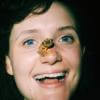

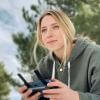







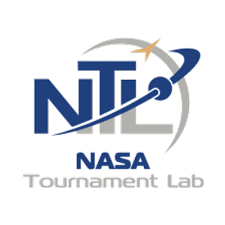






































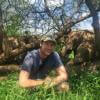








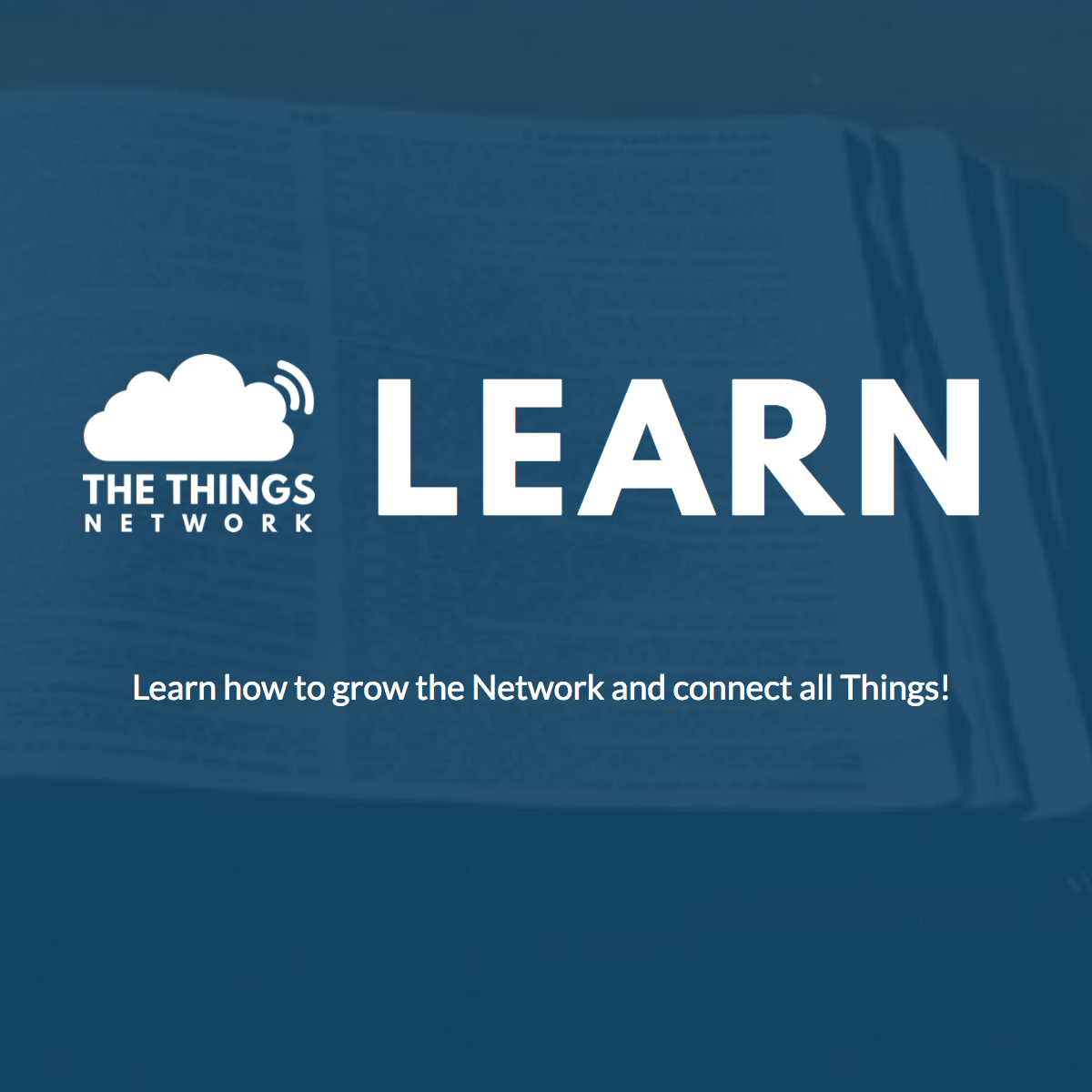

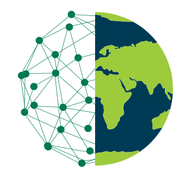

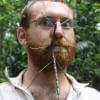
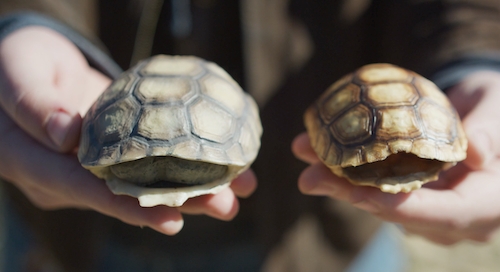

15 January 2024 8:47pm
Interesting, Iʻll give it a shot. Looks like this could save me some time.
Thanks for the explanation @wade!